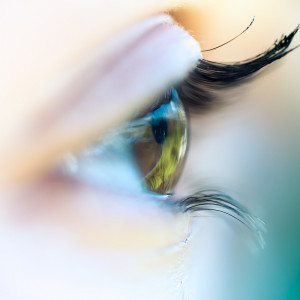The causes of dental anxiety, fear, and phobia are as varied as there are actual responses to anxiety, fear, and phobias.
However, in most representative studies on dental phobias there are a number of repeating reasons provided by responders. They include:
Bad Past Experience – A negative experience during a dental visit either as a child or adult accounts for nearly 80 – 85% of all dental phobias. Many patients report a negative, painful, prolonged, or traumatic experience during dental treatment being the cause of their phobia for any future visits. In some cases however, even psychological behaviours such as being humiliated by the dentist, being spoken to and treated in a belittling manner (or not being spoken to at all), or being treated in an uncaring way can result in an anxiety, fear, or phobia of any future dental visits.
Uncaring Dentist – Interestingly, even for people in dental pain it is very often the attitude and chair-side manner of the treating dentist that has a much larger psychological impact on the person suffering a dental phobia. In one study, pain caused by a dentist is perceived as caring and empathetic is much less likely to result in long-term psychological trauma, and a further avoidance of future dental visits.
Empathy and a thorough understanding of the patient’s needs and concerns therefore are paramount to assisting people with dental phobias overcome their fears and anxieties as much as possible before, during, and after dental visits.
Humiliation – Insensitive remarks or negative judgement from a Dentist, Dental Therapist, or Hygienist can for many people invoke such dramatic feelings of shame, embarrassment, and humiliation so as to significantly contribute to or even cause a dental phobia. Many people with dental anxiety, fears, or phobias are already so embarrassed by the state of their dental and oral hygiene, that any such negative appraisal by the practitioner, even well intentioned can have deleterious long term consequences for the patient.
Embarrassment – Many studies have shown that embarrassment over a person’s dental appearance can lead to further avoidance of visiting a dentist, regardless of what the initial fear or phobia was. This may lead to the development of a fear of negative social stigma, which then often results in a continuing decline in oral health and a never ending cycle of dental phobia, intense embarrassment of one’s dental health, and avoidance of care. As the cycle evolves, a person may reach a point where they are so embarrassed and guilty about their dental appearance, they may feel shame, believing people perceive their oral health as self-neglect.
 History of Abuse – Persons who have been sexually abused in the past represent a significant proportion of the dental phobic population. Additionally, those people who have unfortunately been the subject of psychological or physical abuse such as bullying, harassment, and other forms of emotional abuse also often have a tendency for dental phobia, in particular when combined with a history of bad experiences during a dental visit.
History of Abuse – Persons who have been sexually abused in the past represent a significant proportion of the dental phobic population. Additionally, those people who have unfortunately been the subject of psychological or physical abuse such as bullying, harassment, and other forms of emotional abuse also often have a tendency for dental phobia, in particular when combined with a history of bad experiences during a dental visit.
Post-Traumatic Stress (PTSD) – People who have had experiences during dental visits that they have found ‘horrific’ can suffer long term symptoms typical of PTSD. These may include flashbacks, intrusive thoughts, and nightmares regarding the past and even future or anticipated dental treatment. Other persons who suffer from various mood or anxiety disorders, have a history of substance abuse, and have been victims of domestic violence can develop a dental phobia as a result of PTSD.
Based on current available research, it has been proposed that this psychological condition should be conceptualised as Post Traumatic Dental Care Anxiety (PTDA), and should be classified as part of the Post Traumatic Stress Disorder (PTSD) spectrum in the forthcoming Diagnostic and Statistical Manual of Mental Disorders, fifth edition (DSM-V).”
Loss of Control – Being reclined in a dental chair can be a very submissive position for many people and the ‘loss of control’ feeling can be overwhelming. Even just sitting in a dental chair talking to a dentist can invoke that loss of control feeling as the dentist often looks down on the person during conversation. Regardless of the reason, being laid back in a dental chair can also invoke feelings of being defenseless, helpless, and being exposed or ‘unable to escape’.
 Needle Phobia – For many people, it is the sight of a needle that makes them anxious, fearful, and possibly faint rather than receiving the needle itself. Modern day dental needles are actually incredibly fine and therefore relatively pain free. There is a range of tips and techniques for providing local anaesthetic injections that significantly reduce discomfort to the person receiving the local anaesthetic. This includes numbing the injection site first with a topical anaesthetic, injecting very slowly, and laughing gas before giving the injection, amongst others.
Needle Phobia – For many people, it is the sight of a needle that makes them anxious, fearful, and possibly faint rather than receiving the needle itself. Modern day dental needles are actually incredibly fine and therefore relatively pain free. There is a range of tips and techniques for providing local anaesthetic injections that significantly reduce discomfort to the person receiving the local anaesthetic. This includes numbing the injection site first with a topical anaesthetic, injecting very slowly, and laughing gas before giving the injection, amongst others.
When people feel faint or tend to faint during or after a local anaesthetic injection, this is caused by anxiety that results in a sudden drop in blood pressure. Again there are several techniques that can be used to help prevent this from occurring.
Sights, Sounds, and Smells – Throughout our lives the senses such as sight, hearing, and smell are incredibly powerful reminders of experiences good and bad. They can invoke immediate triggers that associate a certain smell, sight, or sound that causes an onset of anxiety, nausea, vomiting, or even a panic attack.
 Within a dental practice these sights may be the dental chair, the instruments, the waiting room, or even the practice décor. Sounds are often the noise of the dental drill, the suction, air compressor, or other similar sounds that may be associated with memories of past painful or negative dental experiences. Smell is typically associated with the common materials used in a dental practice such as Eugenol (oil of cloves) and cleaning disinfectants.
Within a dental practice these sights may be the dental chair, the instruments, the waiting room, or even the practice décor. Sounds are often the noise of the dental drill, the suction, air compressor, or other similar sounds that may be associated with memories of past painful or negative dental experiences. Smell is typically associated with the common materials used in a dental practice such as Eugenol (oil of cloves) and cleaning disinfectants.
Gagging and Choking – An oversensitive gag reflex is incredibly common amongst the general population. It can be due to a physiological reflex, psychological or both. Many people have trouble brushing their teeth or even placing a fork in their mouth. Or for some, they have no problems until a dentist needs to place something in their mouth such as a dental mirror.
Gagging and a feeling of choking can also be the result of panic during dental treatment, and therefore can be extremely distressing for the patient. An onset of panic can be related to a feeling of not being able to swallow, breathe, or from claustrophobia. People that have difficulty breathing through the nose may also have an increase in a gagging and choking sensation. Fortunately, there are several psychological cognitive behavioural techniques that can be used for extreme gagging, along with topical anaesthetic sprays, and finally intravenous sedation if required so that dental treatment can be conducted safely and comfortably.
Pain – For many people, pain in a tooth, the mouth, or the face can and often does cause considerable anxiety and distress. A tooth infection, inadequate (or no) local anaesthetic being used, difficulty achieving anaesthesia, treatment on a tooth or gum commencing before the local anaesthetic has had a chance to take effect, a painful root canal treatment, a painful injection, or even a dentist who would not stop the procedure despite a person being in considerable discomfort, are all reasons why a great deal of people develop fear and a phobia of dental treatment.
Interestingly, most people who suffer a dental phobia can tolerate very high levels of pain rather than seeking dental treatment. More often than not, this level of pain far exceeds any that may occur during or as a result of dental treatment, however it is considered psychologically better to endure ‘self inflicted’ pain rather than pain that is inflicted by someone else (the dentist).
What we offer:
At the Hobart Orofacial Pain and Special Needs Clinic, we offer a variety of options for persons with dental fear, anxiety, and phobias to access regular dental treatment. We work with the person as an individual, taking our time to build trust and rapport, and utilise various forms of relaxation and sedation as required, including the option of working directly with the UTAS Psychology Clinic to provide the patient with an overall management plan to help them through and over their fears.

We also pride ourselves on providing a welcoming, warm, and homely relaxing environment at our practice for any person that visits. Dr Eldridge has spent many years studying and researching the causes and effect of facial and dental pain management including both general acute and chronic pain.
He has a thorough understanding of the psychological effects that pain, anxiety, and stress can have on a person’s well-being, sleep, and overall mental health. Many techniques can be employed to reduce pain to a bare minimum, and therefore help a person overcome their fears and phobias of accessing regular dental care. After all, pain management is what we are extremely good at.



